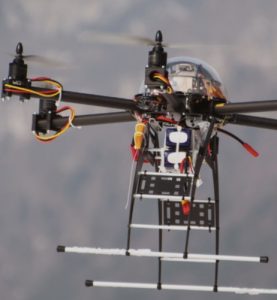Thirty-eight engineering organisations, led by the Royal Academy of Engineering, say the government needs to extend the measures proposed in its industrial strategy to primary and secondary schools.
 The RAE led group welcomes the government’s Green Paper on an industrial strategy which considers large parts of the education pipeline. But it believes “more decisive action” is needed to equip young people with the skills critical to future industries.
The RAE led group welcomes the government’s Green Paper on an industrial strategy which considers large parts of the education pipeline. But it believes “more decisive action” is needed to equip young people with the skills critical to future industries.
Industrial strategy should begin at primary school, according to a new report called “Engineering an economy that works for all” which was published today.
Engineering accounts for 20% of the UK’s gross value added (GVA), but the report highlights what it calls a significant skills crisis that threatens UK economic growth and this is magnified by the decision to leave the EU.
According to the report:
“In research that informed the report, 60% of engineers reported that their organisations were currently ’somewhat’, ‘very’ or ‘highly’ dependent on recruiting employees from outside of the EU.”
The report argues that the government will not be able to deliver on the industrial strategy’s vision of an advanced, globally competitive economy without substantial changes to teaching, qualifications, and curricula.
It also wants to see a targeted focus on promoting STEM subjects and engineering careers to under-represented groups (including girls, people from BAME communities and those from lower socio-economic backgrounds) to fully unlock the talent potential in the UK.
The report, which surveyed nearly 1,300 respondents, argues that the definition of basic skills needs to be broadened to include digital capabilities.
“A comprehensive programme of upskilling also needs to be developed in partnership with industry and training providers to ensure the UK workforce at all levels, in the public and private sector and in all parts of the UK, has the skills needed to shape and participate in the industries of tomorrow,” said the report.
Within the engineering profession there are serious concerns about GCSE Computer Science being the only computing GCSE available to students.
The report recommends that a general computing GCSE is introduced alongside GCSE Computer Science.
“For UK engineering to thrive it argues that GCSE qualifications that cover the whole computing curriculum as well as computer science are needed, to prevent the majority of young people leaving compulsory education at age 16 without any formal computing qualification,” said the report.
The report goes on to highlight the severe decline in uptake of Design and Technology in schools.

Dr Rhys Morgan
To boost much-needed design and engineering skills, including in robotics, electronics and additive manufacturing, the report calls for the inclusion of Design and Technology in the English Baccalaureate accountability measure on schools.
Dr Rhys Morgan, director of engineering and education at the Royal Academy of Engineering, writes:
“The engineering community welcomes that the Green Paper considers large parts of the education pipeline, from basic skills through to post-16 options, technician and professional engineering education, re-skilling and up-skilling the workforce and lifelong learning. But to be a coherent and long-term strategy for the UK, the industrial strategy must reach back further into primary and secondary education, ensuring that the right incentives, inspection regimes and funding models for schools are in place.”
The report recommends that government addresses a lack of the necessary digital technology skills in teaching and to significantly increase funding for subject-specific teacher CPD for primary and secondary school teachers.
 Electronics Weekly Electronics Design & Components Tech News
Electronics Weekly Electronics Design & Components Tech News




As a teacher of Computing/Computer Science GCSE, I can say the inclusion of D and T in the English Baccalaureate will do little for the uptake of the subject. Computer Science is already in the EBacc but is still not considered an option by many schools due to it rigour. The University of Roehampton outlined this in it’s Annual report showing only 28% of schools entered students for the GCSE in Computing. Unless a subject becomes part of the core national curriculum it will continue to be overlooked by school leaders.